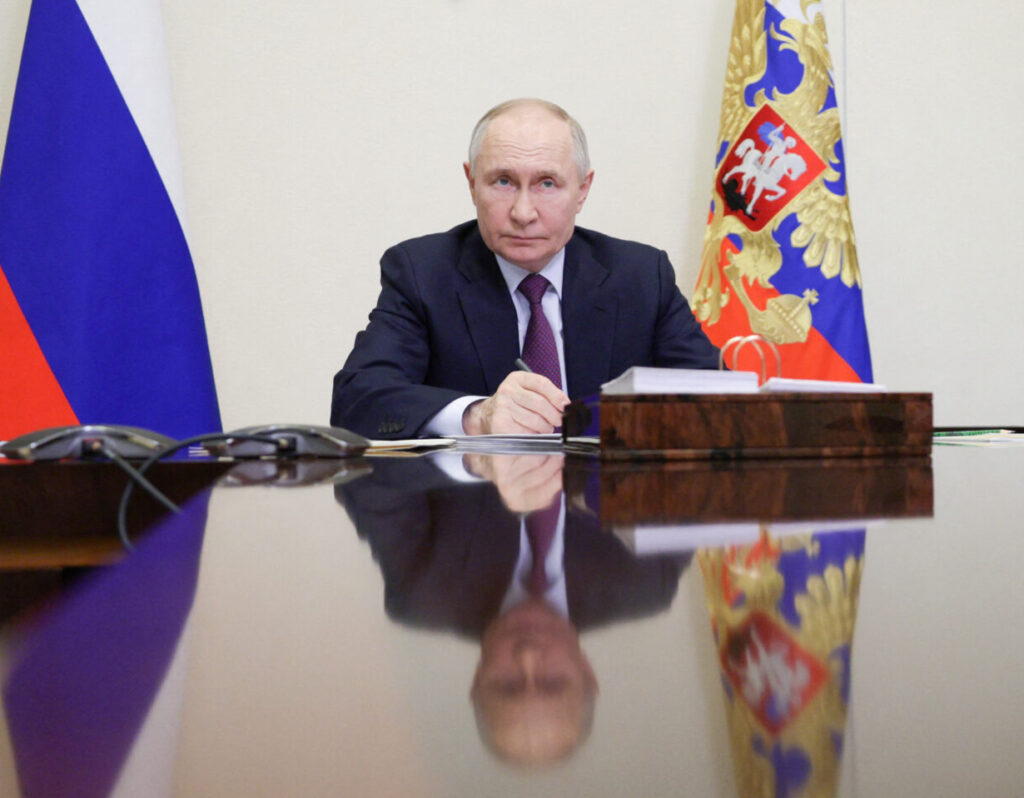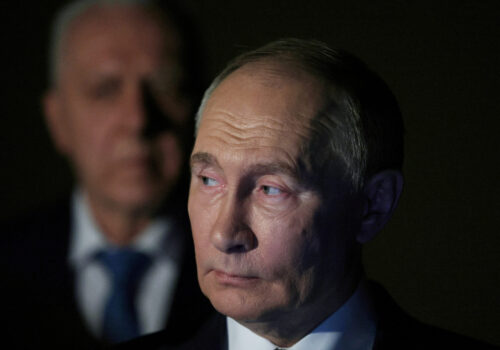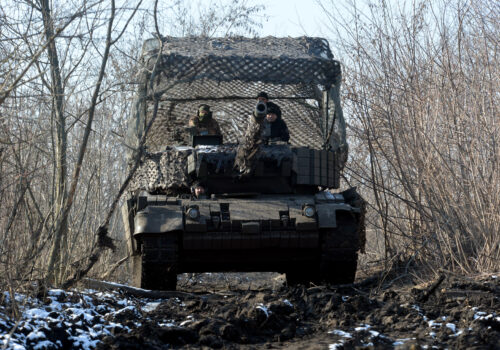Russia’s 2014 seizure of Crimea was a watershed moment in modern European history. The Kremlin’s subsequent full-scale invasion of Ukraine in 2022 brought the world to the brink of World War III. With negotiations over a possible peace deal now reportedly set to begin in earnest, we are approaching a critical juncture that will shape the future of international relations for decades to come.
In hindsight, it is now clear that the threat posed by Russian aggression in Ukraine could have been eliminated almost immediately. As soon as Russian President Vladimir Putin announced the illegal annexation of Crimea in early 2014, Ukraine could have declared war and ordered its military to defend the peninsula. Putting NATO forces on alert would have further cooled the heads of the more hawkish Russian officials in the Kremlin.
This did not happen. Instead, the international community stood by and watched the Russian invasion unfold, while Ukraine’s Western partners advocated passivity and cautioned Kyiv against doing anything that might risk provoking Putin. The opportunity to end Russia’s invasion in the early stages was therefore missed, paving the way for a series of further Kremlin escalations that ultimately led to the full-scale invasion of 2022.
Stay updated
As the world watches the Russian invasion of Ukraine unfold, UkraineAlert delivers the best Atlantic Council expert insight and analysis on Ukraine twice a week directly to your inbox.
Over the past eleven years, the Russian invasion of Ukraine has done serious damage to the foundations of the international security system. It has undermined the inviolability of international borders that was first established in the aftermath of World War II. Russia’s invasion has also seriously discredited the cause of nuclear disarmament, with Ukraine’s 1994 decision to surrender its vast nuclear arsenal now widely recognized as one of the costliest mistakes in modern history.
Given the global implications of any negotiated settlement reached over Russia’s war in Ukraine, it is vital that the entire peace process focus on Russia’s existing international commitments. These include the 1994 Budapest Memorandum and Moscow’s recognition of Ukraine’s 1991 borders. After all, what is the point of signing any new treaties with Russia if Moscow refuses to acknowledge or adhere to the terms of the many agreements and documents it has previously signed?
At stake is the credibility of the entire treaty system governing international relations, such as the 1969 Vienna Convention. Known as the “treaty on treaties,” the Vienna Convention sets out clear guidelines for how international treaties should be drafted, defined, amended, and interpreted. Russia’s invasion poses a similarly grave threat to the 1975 Helsinki Accords, which confirmed the principle of territorial integrity.
Eurasia Center events

It is also important that the peace process specifically address the issue of nuclear non-proliferation. By giving up the world’s third largest nuclear arsenal in the 1990s, Ukraine rendered an unparalleled service to the cause of global security. Over the past three decades, this unilateral Ukrainian step in support of nuclear non-proliferation has translated into savings worth trillions of dollars for countries around the world.
Unfortunately, however, the security commitments that Ukraine believed it had received in the Budapest Memorandum have proved worthless. Instead, Russia has launched the largest European invasion since World War II, bringing untold death and devastation to Ukraine.
Adding insult to injury, the Kremlin has used nuclear blackmail against non-nuclear Ukraine as a tool to enable the invasion and deter the West from providing Kyiv with desperately needed military aid. Understandably, many in Ukraine now feel they have every right to withdraw from the Nuclear Non-Proliferation Treaty unless the country is able to obtain genuine security guarantees.
A bad peace deal will compound the damage that Russia’s invasion has already done to the current international security architecture. It would legitimize international aggression and set a dangerous precedent that could have catastrophic consequences for global stability. In order to avoid this, Western leaders should return to Russia’s existing international treaty obligations with regard to the sanctity of borders and the use of force.
Crucially, Ukraine must also receive credible long-term security guarantees that can prevent any repeat of the current Russian invasion in the years to come. Failure to do so will set the stage for a new era of geopolitical lawlessness that will be felt far beyond the violated borders of Ukraine.
Ihor Smeshko is a Ukrainian politician and former head of Ukraine’s Defense Intelligence and Security Service.
Further reading
The views expressed in UkraineAlert are solely those of the authors and do not necessarily reflect the views of the Atlantic Council, its staff, or its supporters.

The Eurasia Center’s mission is to enhance transatlantic cooperation in promoting stability, democratic values and prosperity in Eurasia, from Eastern Europe and Turkey in the West to the Caucasus, Russia and Central Asia in the East.
Follow us on social media
and support our work
Image: Russian President Vladimir Putin attends a meeting with Governor of the Bryansk region Alexander Bogomaz via a video link from his residence outside Moscow, Russia, February 13, 2025. (Sputnik/Gavriil Grigorov/Pool via REUTERS)




